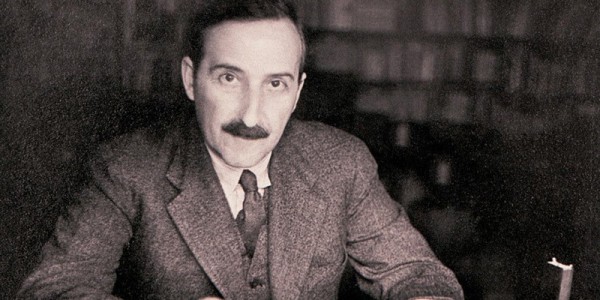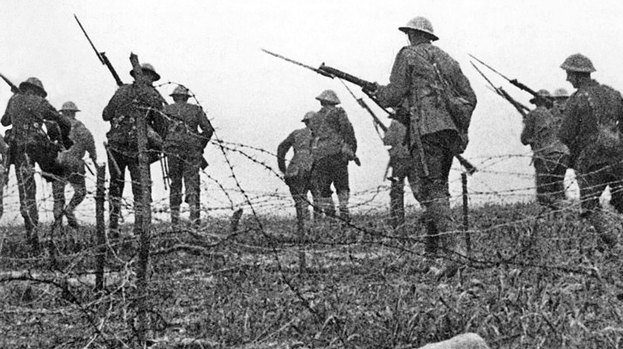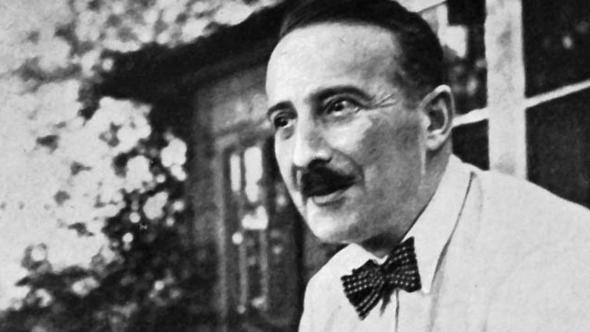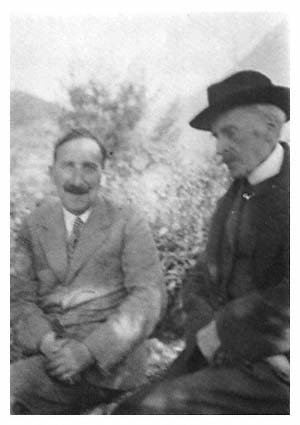The Sad Suicide Story of Stefan Zweig Who Could Not Resist the Nazis
In the depths of his soul, he faced with all kinds of suffering of the loneliness, strangled in troubles, and eventually chose a difficult death.
Zweig, who has experienced the most unfortunate things a writer could have experienced, has been dragged into suicide with anguish...
Stefan Zweig was born in Austria in 1881 as a child of a wealthy family.
Thanks to his insatiable desire and ability to write, he completed his philosophy PhD at the age of 23 and later won one of the most prestigious literary awards of his time.

It was not too late for Zweig to become aware of the corruption after many years of observing society and taking remarks.
After the outbreak of World War I, Although majority of the war-tearing society, he revealed many anti-war statements.

At that time in Austria these kind of thoughts was a reason for to see the heavy penalties and exclusion.
He refused to participate in the war despite all the slander work done to him and somehow began to work in the archive of war.
One of the best explanations of Zweig's thoughts and reasons for that period is:
"I would explain that it is not a job to boast, but it is more appropriate for me to do such a job than puncture the intestines of the Russian peasant."

After the end of the war, many writers, poets, and scientists continue to fight for war, but Zweig does not leave directly what he knows.
There were only a few famous thinkers, writers, who had the same mindset as himself.
German poet Rainer Maria Rilke and French poet Romain Rolland. They communicate with Rolland and their conversations last for years.
After a time, Zweig and Rolland invite the most important thinkers in Switzerland all over the world in Switzerland.
Due to political and political obstacles, this panel could not happen, but all over the world anti-war feelings have flared up, and its predecessors are Zweig and Rolland.

When Nazi fascism comes to power in Germany, the writer goes first to England and then to America. After the beginning of the World War I went to Brazil and settled in the city of Petropolis.
Unfortunately, this escape will not bring Zweig into cave because the outburst of war throws the whole world into fire, and this fire burns most Zweig's soul.
The Nazis, who came to power in Germany, also launched a 'war' against the anti-war writers, poets and scientists.
These precious thinkers start burning all the books they do not have in their favor, and Stefan Zweig is the first writer of the books that burns them.
Zweig was impressed that the German poet Kleist had committed suicide by shooting his wife and himself, and wants his wife Lotte to see this similarity in themselves.
Zweig adds a poison called Veronal into a soda bottle and takes 3 large sips from it. Giving the bottle to his wife, "If you want to come with me, you can do it whenever you want ..."
His wife, Lotte, finally leads him to the following question: "Do you love me?"
"Yes," Zweig and Lotte drink all of the bottle and lie next to the couple with a flowered dress.
On February 23, 1942 Stefan Zweig walked to his death with his wife.
It is said that Montaigne, one of the most popular writers he read before his suicide, finds himself in this expression of Zweig: "The most voluntary death is the best of deaths ..."
Just 3 years after Zweig and his wife commit suicide because of Hitler and his supporters hostile attitude, history reverses.
This time the name of the person who committed suicide with his wife became Hitler, who had a major defeat against the Russians and was the pioneer name of Nazi fascism...
Congratulations @readerchitect! You have completed some achievement on Steemit and have been rewarded with new badge(s) :
Click on any badge to view your own Board of Honor on SteemitBoard.
To support your work, I also upvoted your post!
For more information about SteemitBoard, click here
If you no longer want to receive notifications, reply to this comment with the word
STOP